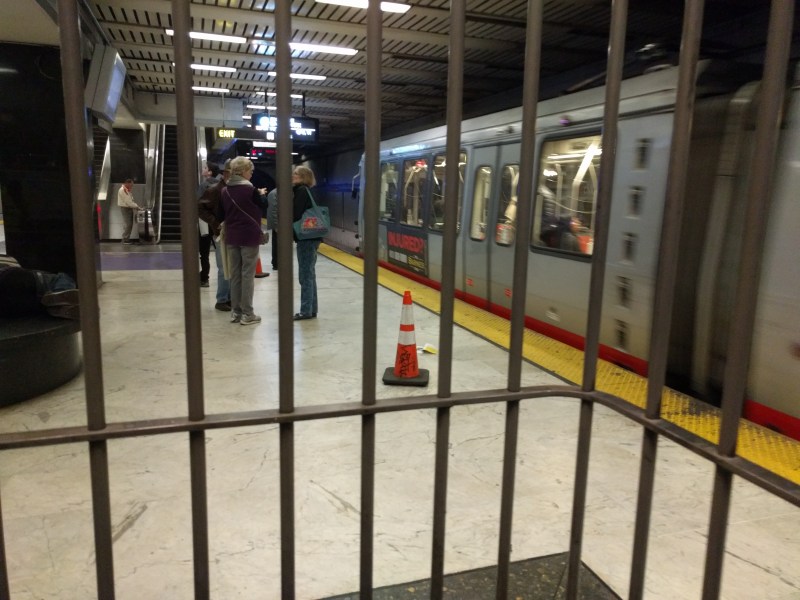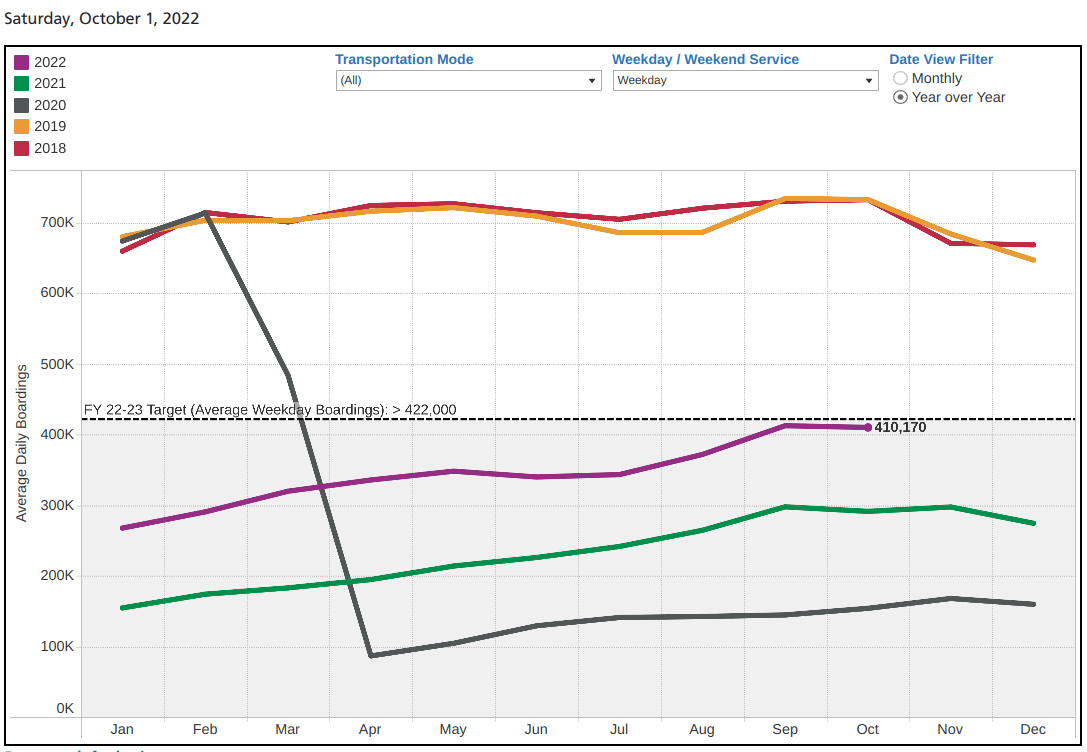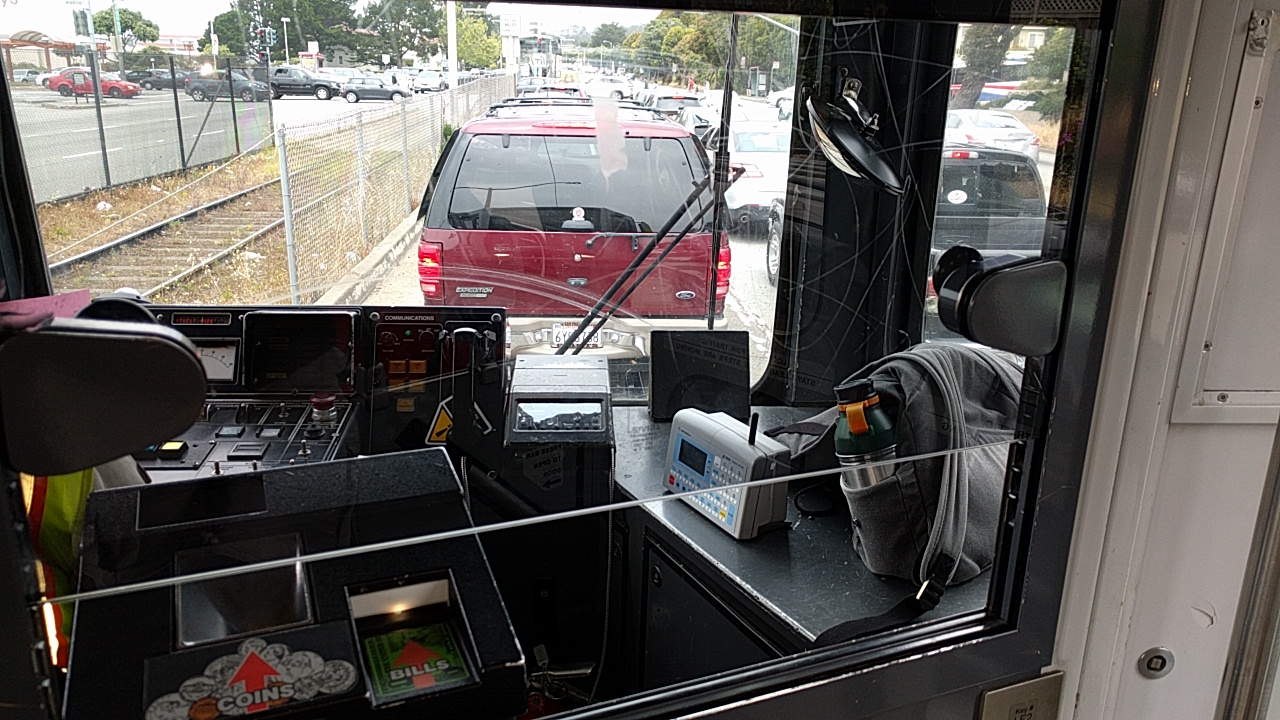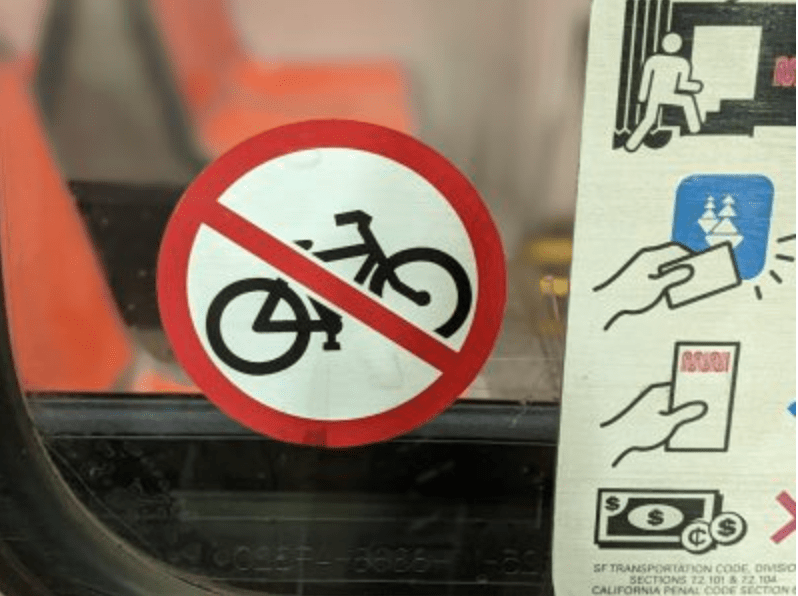Note: GJEL Accident Attorneys regularly sponsors coverage on Streetsblog San Francisco and Streetsblog California. Unless noted in the story, GJEL Accident Attorneys is not consulted for the content or editorial direction of the sponsored content.
I was standing on the Muni platform at Montgomery, with my bike folded, waiting for an N Judah train to get to Cole Valley for a meeting about the J.F.K. Promenade last month. "You need to fold that before you go through the fare gates," I heard someone say. I turned around and standing behind me on the near-empty platform was the clerk from the Muni booth upstairs. She had followed me to give me a talking-to because I refused to fold my folding bike before I got down the stairs.
Anybody who owns a folding bike understands it's awkward and potentially dangerous to carry folded bikes down stairs--and in my case, it's also a good way to throw out my back. Moreover, the only reason I own a folding bike is because of Muni's idiotic bike ban. And the reason I was in too much of a hurry to use the elevator is because I saw on the schedule that, in typical fashion, if I missed this next N Judah there wouldn't be another one for 20 minutes, even though one had left just two minutes before.

And, of course, the main reason the stairs were even an issue is that I couldn't transfer directly from the BART level to the Muni level because of the system's infamous iron bars, seen above.
All of which makes me wonder, if I wasn't ideologically driven to use transit, and I could afford a car, why the actual f*ck would I ride Muni?
It isn't just the petty rules and the bike ban, which seem designed to make it as hard as possible to get anywhere. It's the aforementioned bunching of trains that can turn a short trip into an hour-long affair.

Muni's excuse is that trains get backed up in traffic. Okay, so stop allowing traffic on train tracks. It also doesn't explain why trains bunch going outbound when they're starting in a tunnel. Moreover, anybody who's lived in San Francisco for more than a minute has watched train drivers jump into two or more trains at the end of the line at Balboa Park or Ocean Beach and depart together, rather than wait and leave at regular intervals.
It's fantastic that Van Ness BRT is completed and the Central Subway, at long last, is coming online, but what about all the high-capacity, existing rail lines still sitting in traffic on Judah, West Portal Ave., Ocean, and everywhere else transit mixes with cars? The voters passed a "transit first policy" in 2007. And yet M Oceanview trains, seen below, still sit behind private automobiles waiting to turn left into the Stonestown Galleria.

It's time to cut the bars between BART and Muni. It's time to rationalize and integrate fares. It's time to start running Muni trains at regular intervals. Give trains full signal pre-emption at intersections; get cars off the right of way. And yes, allow customers to take their bikes on trains. In October, when SEPTA announced that it would allow bikes on its light rail vehicles, Muni became the only agency in the country--maybe the world--to still have a blanket ban on non-folding bikes.
I don't think anybody would argue that the passage of Proposition L was an endorsement of Muni management. Rather, it's a clear demonstration, along with Prop. J, that the people want the city to stop dedicating nearly all the space between buildings to private automobiles. San Francisco's voters have again made it clear they value safe streets, bikes, and transit.
The question now is will the people who manage and operate the transit system--and the streets they run on--start to value the voters who have given them the resources and political capital to do better.






